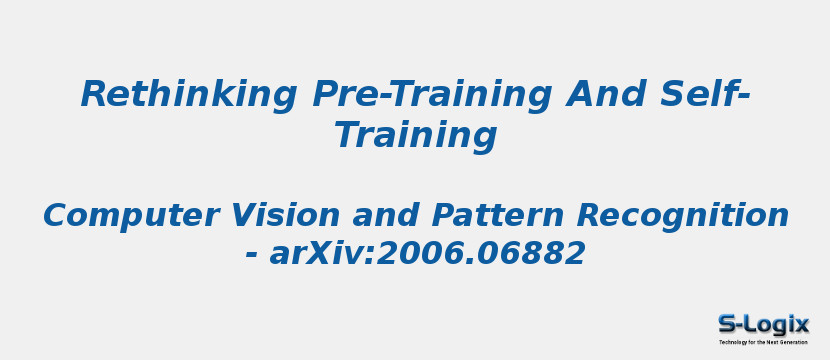Research Area: Machine Learning
Pre-training is a dominant paradigm in computer vision. For example, supervised ImageNet pre-training is commonly used to initialize the backbones of object detection and segmentation models. He et al., however, show a surprising result that ImageNet pre-training has limited impact on COCO object detection. Here we investigate self-training as another method to utilize additional data on the same setup and contrast it against ImageNet pre-training. Our study reveals the generality and flexibility of self-training with three additional insights: 1) stronger data augmentation and more labeled data further diminish the value of pre-training, 2) unlike pre-training, self-training is always helpful when using stronger data augmentation, in both low-data and high-data regimes, and 3) in the case that pre-training is helpful, self-training improves upon pre-training. For example, on the COCO object detection dataset, pre-training benefits when we use one fifth of the labeled data, and hurts accuracy when we use all labeled data. Self-training, on the other hand, shows positive improvements from +1.3 to +3.4AP across all dataset sizes. In other words, self-training works well exactly on the same setup that pre-training does not work (using ImageNet to help COCO). On the PASCAL segmentation dataset, which is a much smaller dataset than COCO, though pre-training does help significantly, self-training improves upon the pre-trained model. On COCO object detection, we achieve 54.3AP, an improvement of +1.5AP over the strongest SpineNet model. On PASCAL segmentation, we achieve 90.5 mIOU, an improvement of +1.5% mIOU over the previous state-of-the-art result by DeepLabv3+.
Keywords:
Author(s) Name: Barret Zoph, Golnaz Ghiasi, Tsung-Yi Lin, Yin Cui, Hanxiao Liu, Ekin D. Cubuk, Quoc V. Le
Journal name: Computer Science
Conferrence name:
Publisher name: arXiv:2006.06882
DOI: 10.48550/arXiv.2006.06882
Volume Information:
Paper Link: https://arxiv.org/abs/2006.06882
